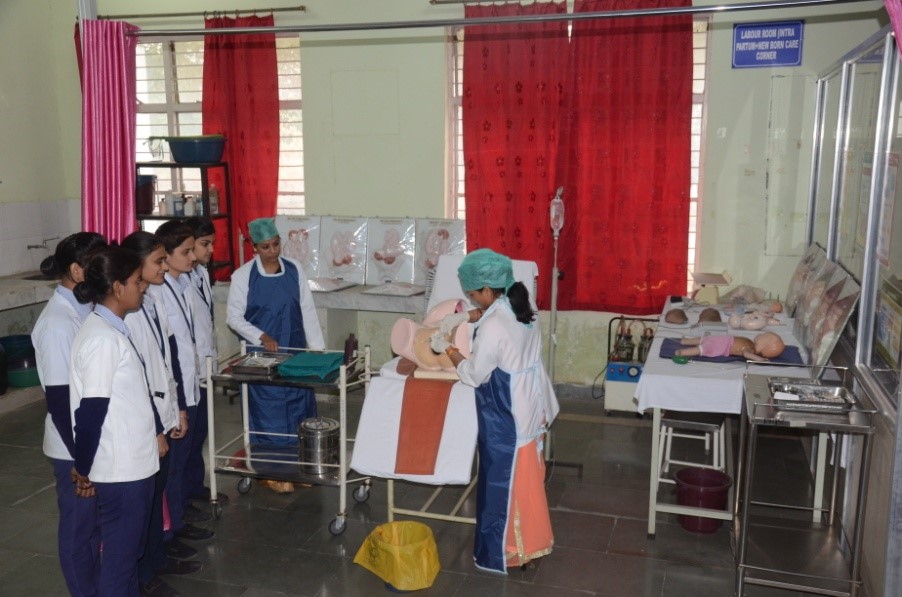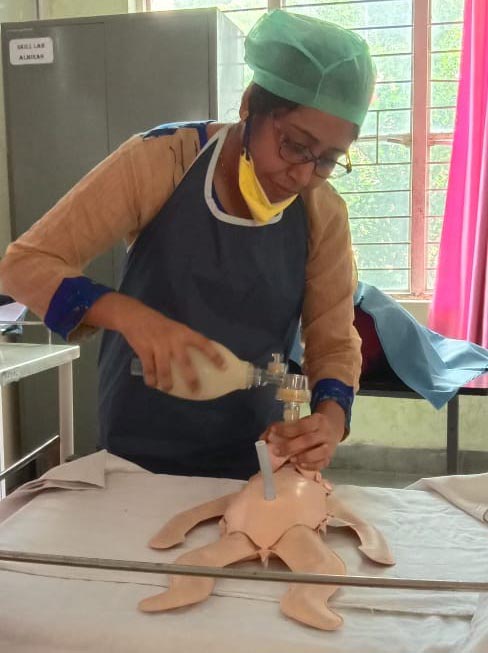PEOPLES COLLEGE OF NURSING AND RESEACH CENTRE BHOPAL OBSTETRICS AND GYNECOLOGICAL NURSING SKILL LAB
Objectives of OBG Nursing skill lab
- Demonstrate compassionate care to women in reproductive age group
- Educate couple and family members for danger signs and get medical care immediately
- Practice competent and evidence based perinatal care
- Recognize high risk pregnancies and follow standard protocols to prevent Complications
- Identify obstetrical emergencies in time and take appropriate life saving interventions
- Organize and manage high dependency unit of NICU with modern technologies
- Educate parents and family member for baby friendly initiatives in the family
- Counsel the eligible couple for family welfare services
- Involve in induction and in service training programs to health care personal
- Update with current trends in OBG nursing
- Conduct Research and capstone projects for publication
- Practice leadership qualities to manage various critical situations
- Advocate for women’s rights throughout the reproductive cycle and menopause
- Develop soft skills to compete with global work forces
- Acquire skill for Midwifery practitioners through Nurse led limits
Plan of Action
- Conduct orientation to students of all programme Continue Innovative method of teaching
- Provide conducive environment for evidence based midwifery learning and practice
- Carry out workshops ,conference to enhance the skill of the students
- Develop clinical skill by clinical experience by demonstration ,clinical presentation nursing audit ,nursing rounds ,case study with the heal log book
- Creating awareness among student by field visit and community outreach activities
- Guide individualized research project and dissemination of result by publication
- Mentor mentee programme to guide to the students
- Encourage student in participating of co-curriculum and outreach activities
- Periodic evaluation of student for theory by means of Monthly Internal assessment.
- Given feedback to student about exam within 3 day of exam completion of evaluation of assignment.
- Analysis of feedback from students about learning experience.
PEOPLE’S COLLEGE OF NURSING & RESEARCH CENTRE BHOPAL MOBSTETRICS & GYNAECOLOGY NURSING DEPARTMENT
The SOP’s have been prepared by a committee of experts and are being circulated for customization and adoption by all Institutes. An effort has been made to document all dimensions / working aspects of common processes/ procedures being implemented in provision of Healthcare in different departments. This document pertains to department of Obstetrics and Gynecology Nursing. The individual Lab departments may customize / adapt/adopt the SOP’s relevant to their settings, approved by and issued by the Head of the concerned department.
VISION FOR THE OSCE:
- The OSCE being an integral part of the curriculum
- Assessment for learning and assessment as learning
- Assessment of different competencies
- The OSCE as a progress test
- Adaptive and sequential testing with the OSCE
- Student engagement and the OSCE
- Appropriate use of technology in the OSCE
- Greater collaboration
SOPs / Trainings:
- Antenatal Assessment
- Abdominal Palpation
- PPIUCD
- AMTSL [Active M/M of Third stage of Labour]
- Mechanism of labour
- Partograph
- Placental Examination
- Newborn Resuscitation
- KMC
- Emergency Obstetric And Neonatal Care (EMONC)
- Emergency Neonatal Care (ENC)
- Integrated Management Of Neonatal And Childhood Illnesses (IMNCI)
- Integrated Management Of Pregnancy And Child Birth (IMPAC)
- FP Surgical And Counselling
- Basic Life Support (BLS)
- General First Aid
- Correct And Appropriate Use Of Biomedical Equipments [BMWM]
MAIN COMPONENTS ARE:
- Lists of skills, behaviors and attitudes to be assessed
- Criteria for scoring the assessment (marking scheme of checklist)
- Time and time allocation between stations
- Anatomic models for repetitive examinations (Breast, Pelvic/Rectum)
- Environment of Exam Station
- Patients Standardized or Simulated
- Timekeeper, time clock and time signal
- Contingency Plans
- Assessment of Performance of the OSCE
EVALUATION OF OSCE:
- Importance of OSCE evaluation
- Validation should be an ongoing responsibility
- Provides guidelines for quality improvement
- Questions to be addressed was the OSCE
- Valid /Reliable
- Appropriate feedback given
- Appropriate standard setting process implemented
- Impact of OSCE on examinees, teachers and curriculum planning
- Contributors to Evaluation
Committee [Examiners,Examinees,Simulated Patents, External Evaluation
THE FUNCTIONAL AREAS OF OBS & GYNE DEPARTMENT
- Emergency
- Triage Area
- Resuscitation room
- Emergency ward
- Procedure Room
- Outdoor Clinic
- Antenatal Clinic
- Gynecological OPD
- Indoor
- Obstetrics
- Antenatal ward
- Stage -1
- Labor room
- Postnatal ward
- Eclampsia Room
- Gynecology
- Pre-operative ward
Post-operative ward
- Operation Theatre
- Recovery Room
- Doctor’s office/Nurses office
OBG OUT PATIENT DEPARTMENT
1.1 Purpose:
To ensure that all patients Attending OPD are attended and provided with quality care in an environment of minimal risk, covering every aspect of patient care from the time patient walks in the registration counter, to consultation and examination room, through diagnosis, treatment and follow-up of the patient in the Hospital.
- Scope:
- SOP covers all the processes and guidelines to be followed by all doctors, nurses, paramedical and other support staff involved in the management of the patient in the OPD.
- It includes provision of preventive, diagnostic, curative and rehabilitative services to the patient attending OPD.
- This also entails management of inventories, cleanliness, security, record keeping and repair and maintenance of equipment.
- Responsibility:
- HOD, specialists, medical officers, senior residents, nursing sister OPD and respective security and sanitation staff.
OBG IN-PATIENT DEPARTMENT.
2.1 Purpose:
Purpose of this SOP is to ensure that all patients are provided with evidence based quality care in an environment of minimal risk, covering every aspect of patient care from the time patient is received in the gynecology ward through diagnosis, treatment, discharge of the patient from the hospital and follow-up.
2.2 Scope:
- The management of the patients in the gynecology ward, and management of the ward including provision of requisite specific care, medication, nutrition, care during pre and post-operative period, transfer, cross referrals/ consultation/discharge/ and end of life care.
- Management of ward includes inventories, cleanliness, record keeping, ward rounds, duty rosters and security management.
2.3 Responsibility:
- The tasks are divided in a practical manner among the doctors and staff posted in the gynecology ward.
LABOUR ROOM
Purpose:
- To ensure that all patients in labour room are provided with evidence based quality care in an environment of minimal risk, covering every aspect of patient care from the time patient is received to discharge of the patient.
3.2 Scope:
- This SOP covers all the processes and guidelines to be followed by all doctors (Obstetrician & Neonatologist), nurses, paramedical and other support staff involved in the management of the patient in the LR, cross referrals/ consultation, transfer inclusive of essential newborn care.
3.3 Responsibility:
- There is a division of tasks and they are divided in a practical manner among the doctors and staff posted in the LR (the labour room team). Individual hospital can divide the task further among available staff depending upon skills and competencies.
ANTENATAL CARE
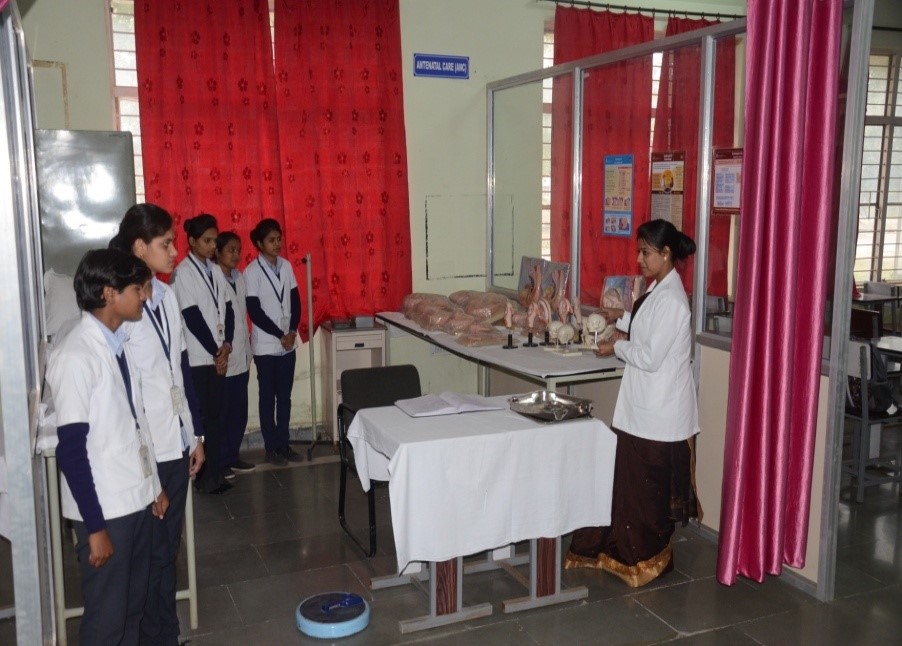
COMPLICATION MANAGEMENT
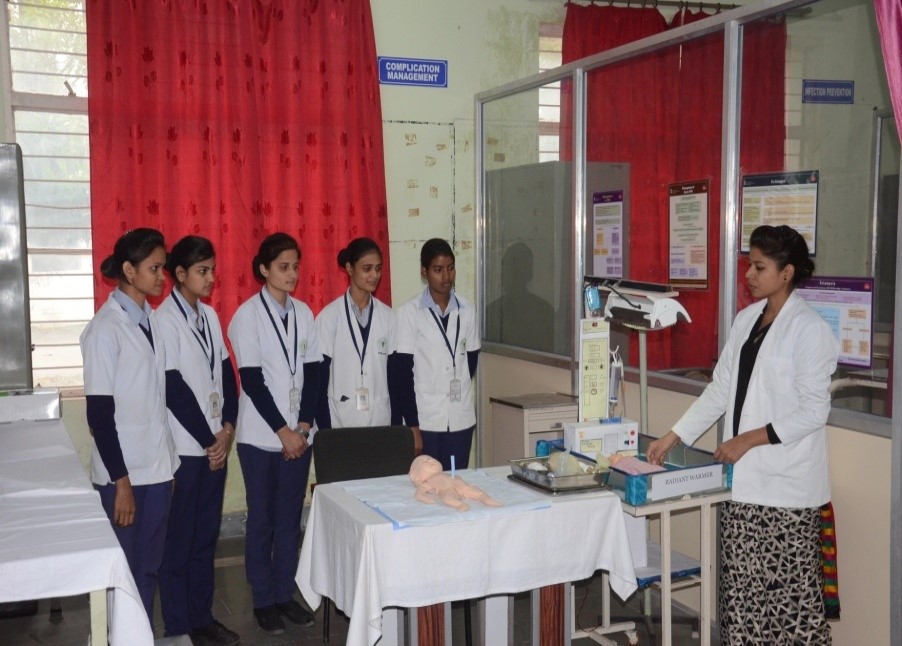
POSTNATAL CARE
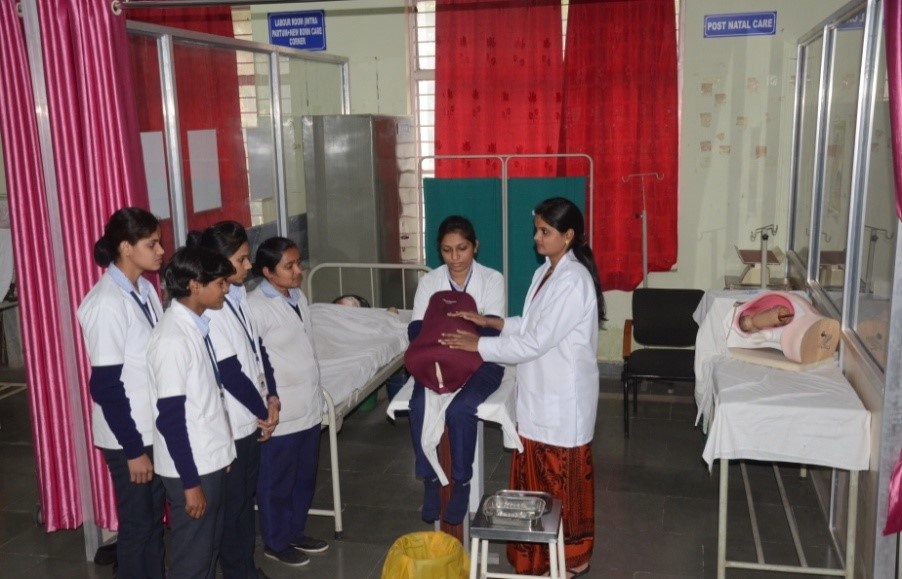
LABOUR ROOM, NEWBORN CARE
